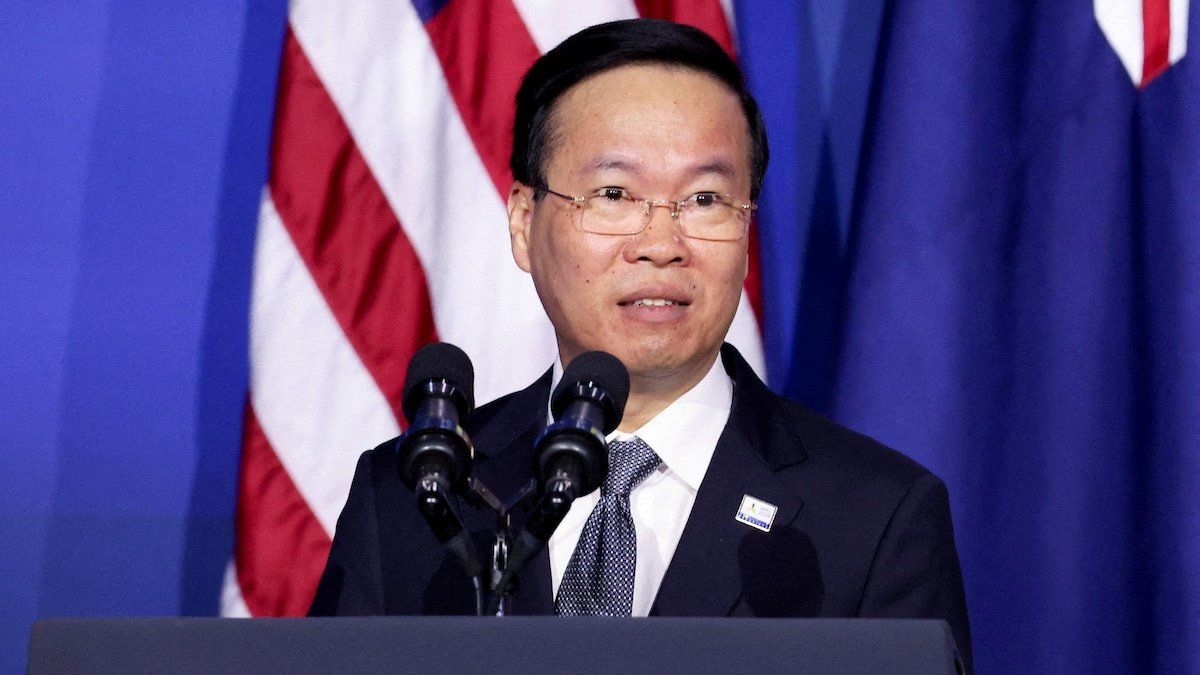The parliament in Hanoi is meeting Thursday in a special session on “personnel matters,” fueling speculation that President Vo Van Thuong may be pushed out. The official reason is likely to be related to provincial corruption scandals – but behind the scenes, Vietnam’s top leaders are vying for a position to replace ailing Communist Party chief Nguyen Phu Trong.
Trong is 79 and was hospitalized in January with an undisclosed illness. Rumors even swirled that he had died before he appeared in parliament, still alive, but looking feeble.
“Since then, there has been increased politicking within the Communist Party, as people try to gain a lead over the others in succeeding Trong,” says Melinda Hoe, a Vietnam expert at the Eurasia Group.
Vietnam’s presidency is largely ceremonial, but whoever holds it is in serious contention to succeed Trong after the 2026 Party Congress. And Vietnam’s in need of capable leadership: With falling birthrates and low incomes, the country needs to get rich – before it gets old.
